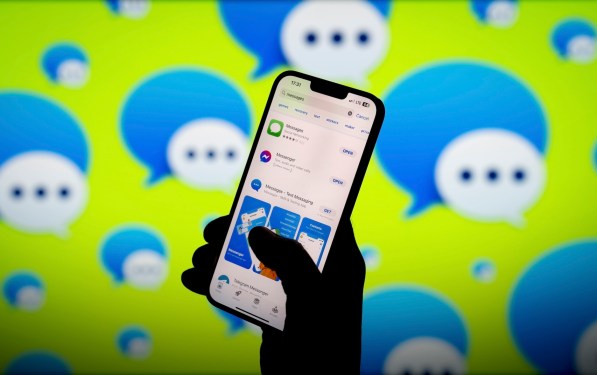In a bid to stay ahead of emerging threats, Apple has announced that it is upgrading the security layer of its popular messaging service, iMessage. The company will be implementing post-quantum cryptography in iOS and iPadOS 17.4, macOS 14.4, and watchOS 10.4, starting from today.
Why Post-Quantum Cryptography?
As technology continues to advance, quantum computers are expected to become more powerful, threatening the security of current encryption standards. Apple has warned that in the coming years, these supercomputers will be able to break through today’s cryptography, leaving users vulnerable to decryption attacks.
How Does iMessage’s Encryption Work?
Currently, messaging apps like iMessage use a pair of public and private keys for end-to-end encryption. The public key is used to encrypt messages sent by the user, while the private key is utilized by the recipient to decrypt the message. This process happens seamlessly in the background.
The cryptography used today relies on mathematical functions to scramble user messages. However, malicious hackers can exploit these functions and break through the encryption with sufficient computing power. Apple believes that future quantum computers will be capable of exponentially faster computations, rendering current encryption standards obsolete.
Apple’s New Protocol: PQ3
To address this impending threat, Apple has developed a custom-built protocol called PQ3 (Post-Quantum 3). This new standard combines Elliptic-Curve cryptography with post-quantum cryptography. The company claims that its PQ3 protocol will provide robust protection against future quantum-based decryption attacks.
How Will PQ3 Work?
According to Apple, the PQ3 protocol will apply to all new iMessage conversations and refresh session keys for prior conversations. This ensures that older messages are also protected against potential decryption threats. The company has asked two academic research teams to evaluate its PQ3 standard, which is still in its early stages.
Implications of Apple’s Move
Apple’s announcement comes at a time when lawmakers are debating online safety regulations that may compromise encryption on messaging services. This move highlights the importance of keeping users’ data secure and protected against emerging threats.
In related news, companies like Meta are working on applying end-to-end encryption protection to their products, including Messenger and Instagram. Signal, another popular messaging app, has already upgraded its encryption algorithm to post-quantum standards last year.
What’s Next?
As technology continues to advance, it is essential for companies like Apple to stay ahead of emerging threats. By implementing post-quantum cryptography, Apple demonstrates its commitment to user security and data protection.
While there are no immediate measures to quantify the effectiveness of Apple’s PQ3 protocol, the company’s efforts will undoubtedly provide a robust layer of protection against future quantum-based decryption attacks.
What Does This Mean for You?
As users, it is essential to be aware of these changes and understand their implications. With post-quantum cryptography in place, you can rest assured that your iMessage conversations are protected against emerging threats.
However, as technology continues to evolve, it’s crucial to stay informed about the latest developments in security and data protection.
Frequently Asked Questions (FAQs)
- Q: What is post-quantum cryptography?
A: Post-quantum cryptography refers to encryption methods that are resistant to quantum computer attacks. These methods use advanced mathematical functions to secure data, making it difficult for malicious hackers to break through. - Q: How does PQ3 work?
A: The PQ3 protocol combines Elliptic-Curve cryptography with post-quantum cryptography to provide robust protection against future quantum-based decryption attacks. - Q: What are the implications of Apple’s move?
A: Apple’s implementation of post-quantum cryptography demonstrates its commitment to user security and data protection. This move highlights the importance of keeping users’ data secure and protected against emerging threats.
Conclusion
Apple’s announcement marks a significant step towards securing iMessage conversations against future quantum-based decryption attacks. By implementing post-quantum cryptography, Apple sets an example for other companies in the industry to follow suit.
As technology continues to evolve, it is essential for users to stay informed about the latest developments in security and data protection. With Apple’s PQ3 protocol in place, you can rest assured that your iMessage conversations are protected against emerging threats.
Recommendations
- Stay up-to-date with the latest news and developments in security and data protection.
- Be aware of the importance of keeping users’ data secure and protected against emerging threats.
- Consider using other messaging apps that have implemented post-quantum cryptography, such as Signal.









